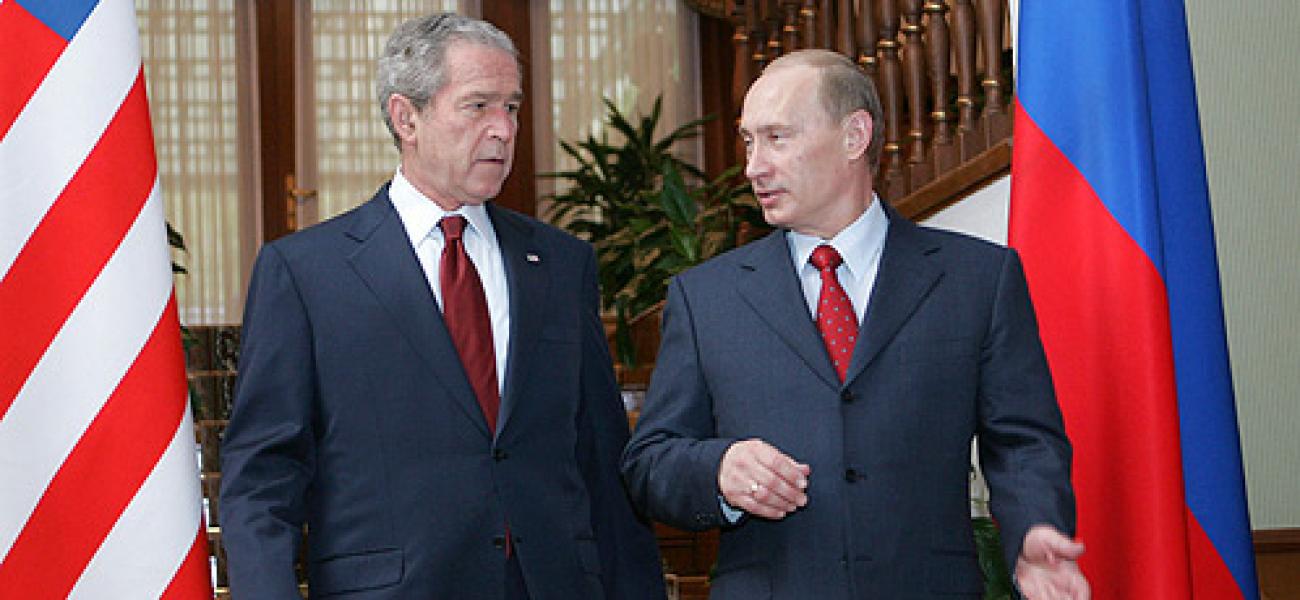
The moment when Putin turned away from the West
March 09, 2023
David Ignatius
This is a summary of an article originally published by The Washington Post.
The author, columnist for the Washington Post, writes:
- “[Putin’s] invasion of his neighbor was the illegal, unjustifiable act of a ruthless authoritarian. But in assessing the roots of such a conflict, it’s useful to understand the mind of the adversary—and to see clearly the pathway to disaster. So, here are some little-known facts: ... The Russian-American counterterrorism alliance ruptured after a Sept. 1, 2004, attack by Chechen separatists on a school in Beslan. ... Three days after … Putin delivered a blistering speech ... in an unmistakable reference to the United States, Putin added: ‘Some would like to tear from us a ‘juicy piece of pie.’ Others help them … reasoning that Russia still remains one of the world’s major nuclear powers, and as such still represents a threat to them.’”
- “Did Putin have any grounds for his claim afterward that America was aiding the Chechen separatists? According to a careful review of the evidence by the Belfer Center at the Harvard Kennedy School, Putin was ‘partially correct.’”
- “Bush had maintained a surprisingly close relationship with the Russian leader, centered on a counterterrorism alliance. … But Putin came to believe that America was an unreliable, hypocritical partner—and that belief would curdle into the open feud that has deepened, year by year. … In late 2004, Putin's anger at what he saw as the West's machinations would increase when Ukrainian opposition leader Viktor Yushchenko won the presidency over the Kremlin-backed candidate, Viktor Yanukovych.”
- “Putin's turn away from the West may have been inevitable. The Russian leader is an authoritarian, and he wanted to protect Russian influence in the former Soviet space. But [Thomas] Graham poses an intriguing query in summarizing the classified record: ‘Did the United States and Europeans miss something fundamental in the Russian situation and psyche at the time? Did they misread the situation and fail to craft an offer of cooperative relations that adequately accounted for Russian interests and perspectives?’”
- “By late [2004], according to several former officials, U.S. intelligence was gathering reports that Putin's security chiefs were urging him to break decisively with Bush and adopt a more aggressive policy.”
Read the full article at The Washington Post.
Author
David Ignatius
David Ignatius is a prize-winning columnist for the Washington Post and has been covering the Middle East and the CIA for nearly four decades. He has written several New York Times bestsellers. He lives in Washington, D.C.
The opinions expressed herein are solely those of the author. Photo shared in the public domain.
Click to Subscribe
Russia Matters offers weekly news and analysis digests, event announcements and media advisories.
Choose and sign up here!
Recent Analysis
CIA Director Burns on Ukraine: ‘We’re Running Out of Time to Help Them’
April 25, 2024
George W. Bush Presidential Center
Personnel Stagnation to Splinter Putin Elite With Battle of Lost Generations
April 19, 2024
Andrey Pertsev

